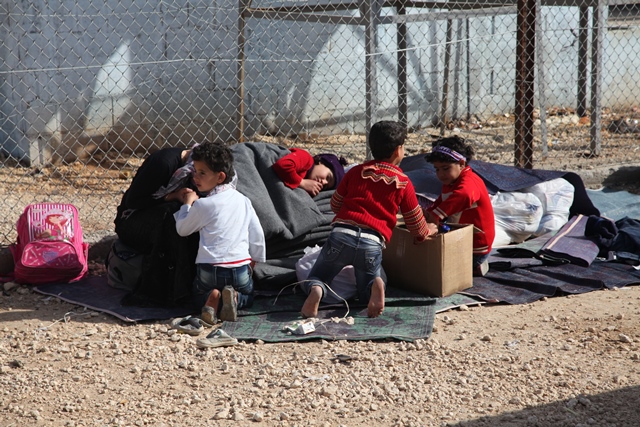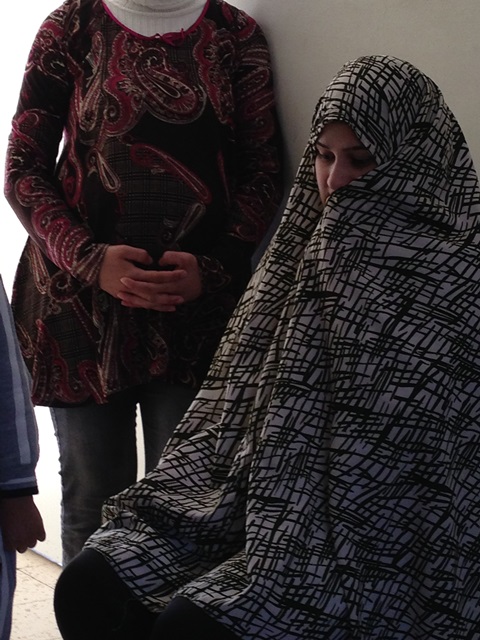In Syria, access to medical care is virtually nonexistent. Hospitals and clinics have been forced to move underground, having become direct targets of the regime army. Doctors have fled for their lives, knowing that if they are found aiding civilians, they will be singled out, tortured, and killed on the spot.
Medical resources are diminishing quickly and supply lines have been cut off almost entirely. Refugee camps are struggling to keep up with the rising demand for care, as many arrive at the Syrian border on the verge of death.
Women who are pregnant face the painful reality that they will likely give birth in a cold, filthy room or in a tent in the freezing rain. And if complications arise, the chances for life—both the baby’s and their own—are highly uncertain.

During my time on the Syrian border, I met a couple who was expecting the birth of a child in less than a month. The wife Roa was greatly distressed. Even though she was only in her mid-thirties, her face was haggard and tired from constant worry. Before making the trek over the border into Jordan, she had already lost two babies. The chaos around her—the shelling, the constant threat of violence—was far too much for anyone to take, much less someone who is fighting to support another life. The physical, emotional, and psychological toll was just too much.
Roa’s husband, Mohammed, told me his wife was terrified that she would lose another child to this monstrous crisis. I couldn’t imagine the pain and uncertainty she was going through.
Inside the refugee camps, the health crisis is even more acute. Masses of people—over 80,000 in the camp I visited—are crammed into rows upon rows of tiny plastic tents. The steady pounding of freezing rain and snow has caused these dwellings to flood, and water-related illnesses, like cholera and hepatitis A, are spreading indiscriminately.
A single filthy latrine is shared by more than 150 people. Conditions are growing worse as thousands more flood over the border daily.
Without a steady supply of medicine, curable ailments become death sentences, and preventable diseases are crushing thousands every day. The children, who make up over half the population of refugees, are the most susceptible.

A crucial part of our relief strategy is providing simple medicine and hygiene items to refugee families along the Syrian border. Your gift today can help supply these life-saving items along with other vital necessities—food, blankets, heating sources, etc., to refugees in need.
For $100, you can reach an entire family with the resources they need to survive for an entire month. Think of the impact you can make—it’s just incredible.
We must respond now before disease and sickness threaten to steal even more lives. Your gift can be the difference between life and death for a refugee child—a priceless investment in the future of a devastated nation.





